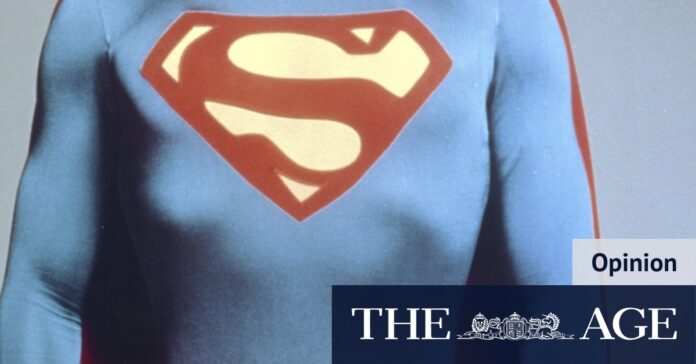[ad_1]
To hear it from bulls, the newborn year already belongs to central banks. Reviled not long ago for letting prices surge, Federal Reserve Chair Jerome Powell and his peers have been anointed by traders as saviours of the world. Those clapping the loudest probably don’t know how right they are.
The widely predicted global recession has yet to occur, inflation is coming down quickly, and interest rate cuts are projected. As welcome as this development is, don’t imagine for a second that the lords of finance are going into repose. It’s never mission accomplished. Central banks will occupy an ever-more important position in the economic and security life of nations, if history is any guide.

Central banks will occupy an ever-more important position in the economic and security life of nations, if history is any guide.Credit: Louie Douvis
What’s often overlooked in hand-wringing about inflation targets and job growth is the part monetary guardians play in statecraft — and their potential to ride to the rescue in future crises, be they in the arena of finance, public health or even superpower grand strategy. Such interventions are often framed as a response to economic or market conditions, or the exercise of classic lender-of-last-resort responsibilities. But their impact on a state’s ability to provide the basics of a functioning society is great.
The 2008 subprime fiasco, the euro debt crisis, and the peak phase of the COVID-19 pandemic are merely recent examples of muscular central banks making the difference. In Asia, the coming years are replete with potential tests of how well the political class can manage without monetary backstops: Will Jakarta push Bank Indonesia to once again directly finance the budget? How will Japan, which for decades has enjoyed ultra-cheap money, pay for a dramatic increase in defence spending? Bank Negara Malaysia was even in the airline business in the 1990s.
Far more broadly, a recent paper by Will Bateman, an associate professor at the Australian National University, describes how Powell’s predecessors stood behind fiscal policy at critical junctures and, as a result, facilitated broader objectives. Rates were effectively pegged at low levels during World War II, and a generation earlier, the Fed effectively underwrote President Woodrow Wilson’s wartime spending. Concerned about German territorial ambitions in the Caribbean, the US bought the Danish West Indies — later the US Virgin Islands — from Denmark in 1917. Without an injection from the Fed into Treasury, the purchase would have foundered.
The 2008 subprime fiasco, the euro debt crisis, and the peak phase of the COVID-19 pandemic are merely recent examples of muscular central banks making the difference.
In 1958, Dwight Eisenhower dispatched troops to Lebanon to assist in quelling an uprising the White House asserted was fomented by the Soviet Union and Gamal Abdel Nasser, the Egyptian leader regarded as a leftist troublemaker. Investors, worried about a wider conflagration with Moscow, became skittish and a Treasury refinancing operation faced collapse without the direct intervention of the Fed, wrote Bateman. Following Richard Nixon’s invasion of Cambodia in 1970, the Fed was required to rescue another refinancing.
Whether the outcomes brought about were successes or failures, the Fed was crucial to US leadership. Such actions needn’t be considered taboo, no matter how wary the current crop of central bank leaders is of being seen to venture off their turf.
History suggests central banks ought to be seen as geopolitical assets, Bateman said in an interview. “You can’t do any form of major military investment, any form of major currency control, import-export control, any kind of food security program, supply-chain protection program, social insurance,” in their absence, he told me. “You can’t do any of these geoeconomic policies without a stabilising mechanism, which is the monetary authority. You just can’t do it without this financial intermediary between a treasury and private creditors.”
[ad_2]
Source link


